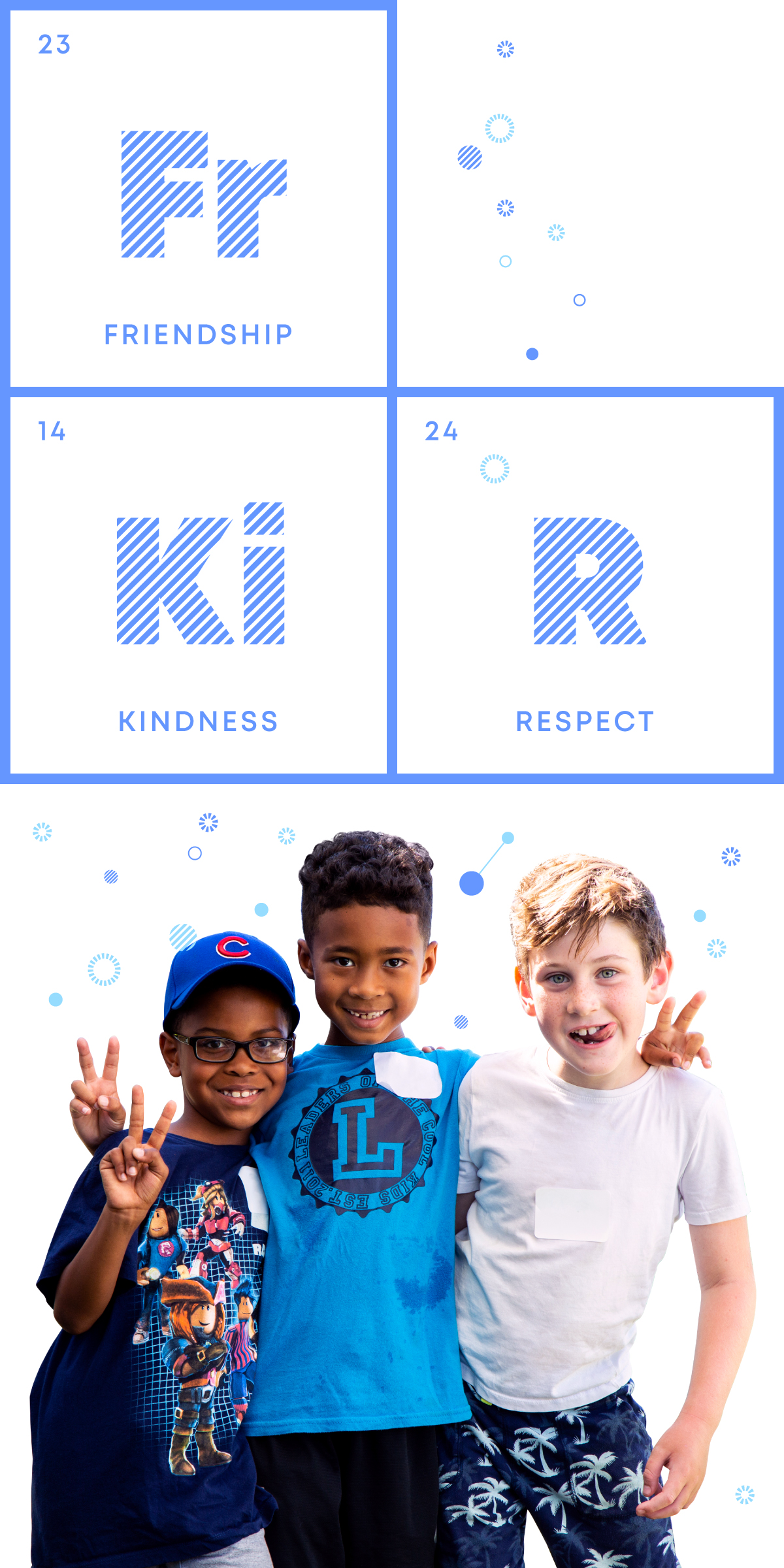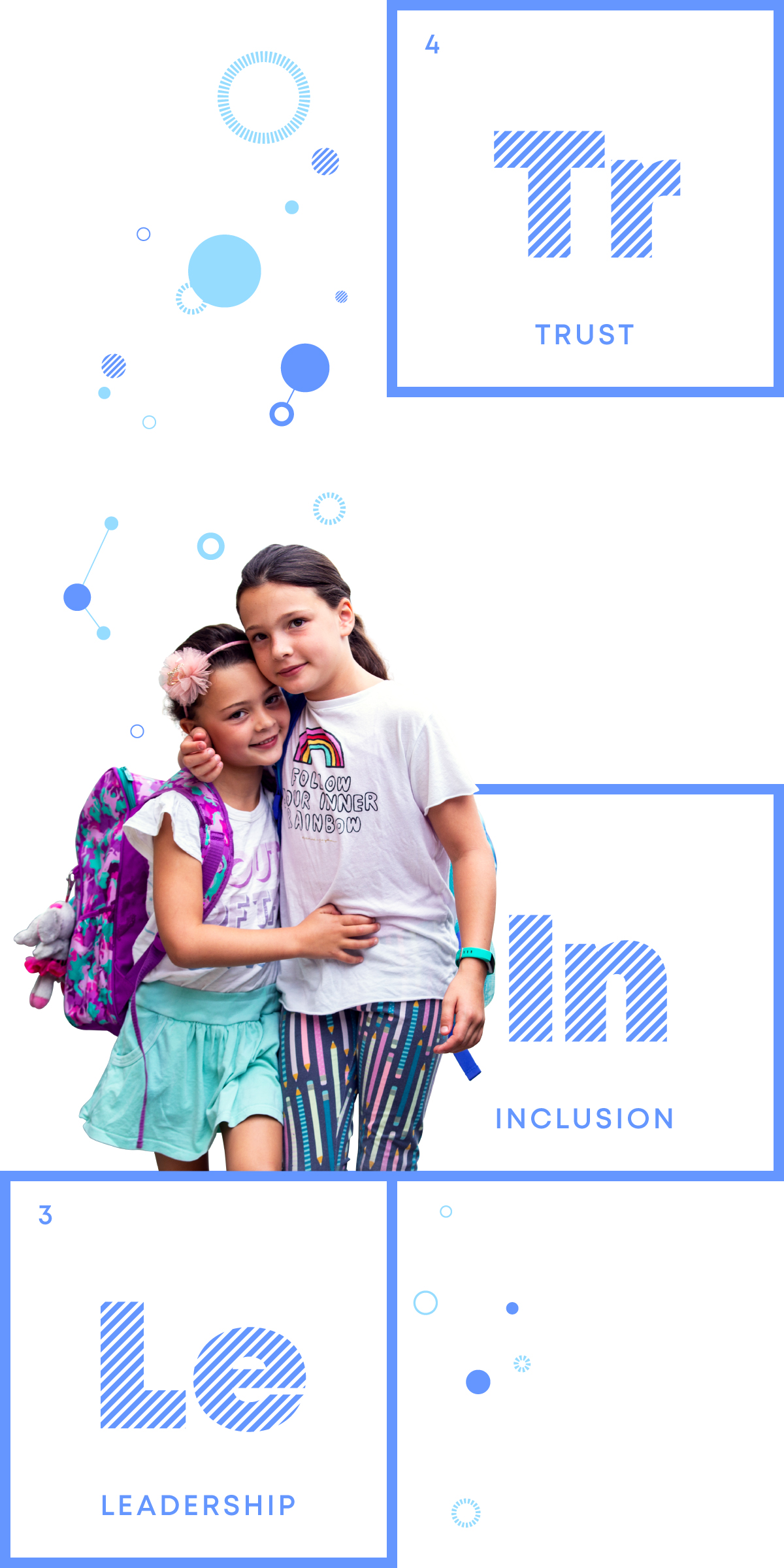Friendship
Human interactions that create social bonds— like playing, laughing, singing, and storytelling —activate endorphins and oxytocin, the neurotransmitters, or chemical messengers, that link us to each other. To call someone a friend, the relationship must be long-lasting, positive, and involve cooperation. Studies have shown that people who are socially connected live longer; more proof that it is important to nurture friendships.
Kindness
Being kind is more than just a display of good manners. A 2018 study published in The Journal of Social Psychology demonstrates that being kind to others, whether or not we are close to them, may be inherently rewarding for us and activate an evolved neuro-biological system involved in caring for others. Furthermore, observing kindness—rather than seeing a world full of stress and bad news— is a way of noticing the good around us, which can boost our mood.
Respect
Children build their sense of self-respect from their exchanges with others. When they feel valued, they develop a positive sense of self, which in turn allows them to hold others in high esteem. Research shows that our overall happiness is intertwined with how much we are respected and admired by those around us, which is why this is a foundational tenet in our community.


Trust
Meaningful school relationships based on trust allow students to feel safe to speak their mind, and to discuss triumphs and challenges with openness and honesty. Students who feel secure are more apt to make collective decisions, to take risks, and to rebound after disappointment. At Turning Point, students are given intentional, ongoing opportunities to develop trust—with adults and with each other.
Inclusion
Inclusion, as a foundational philosophy, is integral to our community and curriculum. We commit to ensuring that all school constituents feel respected and valued for being their full authentic selves. Numerous studies have shown that schools dedicated to inclusion and equity are strongly associated with a range of short and long term benefits for students, including the ability to challenge assumptions, think critically, empathize with people who are different from them, and work collaboratively to discover creative solutions to real world problems.
Leadership
When students are empowered to lead, they become architects of their futures and change agents in their schools and communities. They are more apt to take appropriate risks, seek out challenges, develop self-confidence, and self-advocate. Our students practice and reflect on leadership skills in authentic contexts with the support and guidance of trusted teachers and advisors.
































